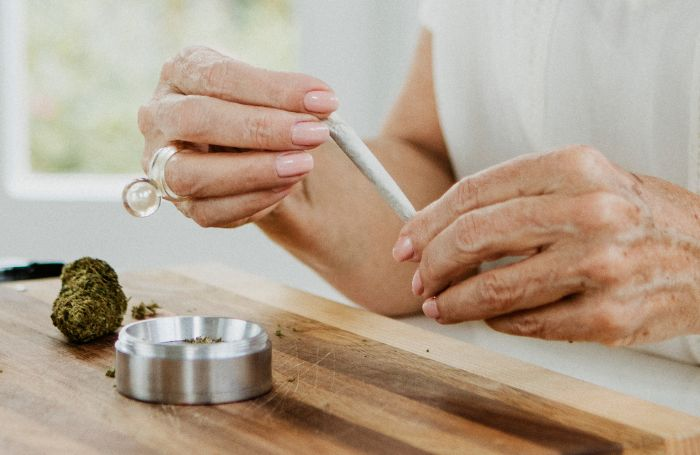Cannabis Use Among Seniors: A Growing Trend to Watch

Cannabis use among seniors has surged significantly in recent years, indicating a noteworthy shift in perceptions regarding marijuana use among the elderly. Research highlights a staggering 46% increase in cannabis consumption among Americans aged 65 and older from 2021 to 2023, reflecting broader trends in cannabis legalization for both recreational and medicinal purposes. The study published in JAMA Internal Medicine revealed that 7% of seniors reported using cannabis within the last month, up from earlier years, shedding light on its increasing acceptance in this demographic. While many older adults are exploring the potential cannabis benefits for pain relief and mental health support, experts warn of the associated health risks cannabis poses to seniors, including concerns about medication interactions and cognitive decline. As more elderly individuals embrace marijuana, understanding its implications becomes crucial for promoting safe usage and ensuring informed decisions.
The rising trend of marijuana utilization among older adults has sparked conversations surrounding its impact on well-being and healthcare. As more states enact measures to legalize cannabis, it is becoming increasingly accessible to senior populations seeking alternatives for managing chronic pain and mental health issues. Notably, older users often turn to weed for relief from conditions like hypertension or anxiety, yet many remain unaware of the potential health risks cannabis can pose when coupled with existing medical treatments. This growing acceptance and use of cannabis highlights the need for informed discussions about its effects and the need for healthcare providers to guide elderly patients on safe consumption practices. In this evolving landscape, understanding both the advantages and dangers of cannabis becomes paramount for enhancing the health and quality of life for older adults.
The Rise of Cannabis Use Among Seniors
The landscape of cannabis consumption is shifting, with older adults showing a remarkable increase in marijuana use. Recent studies indicate a staggering 46% rise in cannabis use among Americans aged 65 and older from 2021 to 2023. This surge can be attributed to the legalization of cannabis in many states, making it more accessible for seniors seeking relief for various ailments. Many older adults are turning to cannabis not only for pain management but also for sleep disorders and mental health support, enhancing their quality of life and allowing them to engage more actively in daily activities.
Moreover, the demographic shift in cannabis consumption reflects broader acceptance of marijuana in society. As stigma fades, seniors are increasingly exploring cannabis in a bid to find alternative therapies for chronic conditions such as hypertension and arthritis. However, it’s crucial to recognize that while the benefits of cannabis for older adults can be significant, responsible use is paramount. By consulting healthcare providers, seniors can navigate the complexities of cannabis use and ensure that it complements rather than complicates their existing health management.
Frequently Asked Questions
What are the health risks of cannabis use among seniors?
Health risks associated with cannabis use among seniors include potential cardiovascular issues, cognitive impairments, and adverse psychiatric reactions. Seniors often take multiple medications, and cannabis can interact negatively with these, complicating chronic disease management and increasing the likelihood of emergency room visits.
How has marijuana use among the elderly changed in recent years?
Recent research indicates a significant increase in marijuana use among the elderly, with a 46% rise reported between 2021 and 2023. This change is largely attributed to the legalization of cannabis in many states, making it more accessible to older adults.
What benefits does cannabis offer to older adults?
Cannabis can offer several benefits to older adults, including pain relief, improved sleep quality, and potential mental health support. Many seniors are turning to cannabis as a natural alternative for managing symptoms of chronic conditions such as arthritis and insomnia.
Is cannabis legalization impacting seniors’ health and usage habits?
Yes, cannabis legalization is impacting seniors’ health and usage habits significantly. An increase in accessibility has led more older adults to use cannabis, with some studies showing that 7% of seniors reported using it in the past month. However, this trend raises concerns about the health risks associated with its use.
How can cannabis affect mental health in the elderly?
Cannabis use among seniors has both potential benefits and risks for mental health. While some older adults may find relief from anxiety or depression, there are concerns about adverse psychiatric reactions, especially with edibles. It is crucial for seniors to consult healthcare providers when considering cannabis for mental health.
| Key Point | Details |
|---|---|
| Increase in Usage | 46% increase in cannabis use among Americans aged 65+ from 2021 to 2023, rising from 4.8% in 2021 to 7%. |
| Demographics | Higher usage noted among women, those with college degrees, higher incomes, and married individuals. |
| Health Conditions | Use linked to health issues like hypertension, diabetes, cancer, and COPD. |
| Safety Concerns | Adverse effects include potential psychiatric reactions, cardiovascular risks, and cognitive impairments. |
| Expert Recommendations | Healthcare providers should be consulted before starting cannabis; comparisons made to smoking risks. |
| Reasons for Use | Seniors are using cannabis for sleep, pain relief, and mental health support. |
Summary
Cannabis use among seniors is on the rise, with a reported 46% increase among Americans aged 65 and older. This trend is attributed to factors such as greater accessibility due to legalization, alongside rising health management needs within this age group. However, while many seniors seek relief for sleep, pain, and mental wellbeing through cannabis, it is crucial to approach such use with caution due to the associated health risks. Experts recommend consulting healthcare providers to mitigate the risks of adverse effects, particularly among older adults who may already be managing chronic health conditions.




